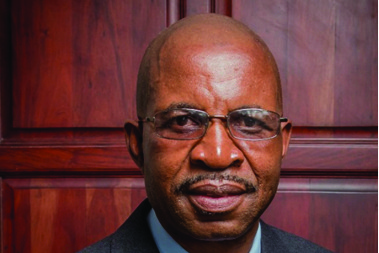
IF ever there is a verity citizenry learnt the hard way, it is that Zimbabwe has not been a prime investment destination for a long time. Her ratings dropped since becoming a red flag zone at the turn of the century.
Henceforth, she has been avoided like an Old Testament leper.
It is difficult to come to terms with the reality that Zimbabwe is now an importer of grain. If anyone ever intimated to me that the country would be reduced to a marketing territory for South African food and household products, I could have cast scornful glances at him.
Yet, what were bustling industries are now forlorn like a disused cemetery. All economic activities are grounded, gathering dust and rust. Manufacturing zones are almost deserted and abandoned like a war zone.
A country that was a famed breadbasket of the region and beyond now relies on food imports and aid from humanitarian institutions. It is untoward that the Presidency gloats over the imported presidential food aid scheme yet our soil and toil used to feed us.
Sights and sounds of tractors and combine harvesters are now a faded memory. Thistles and thorny bushes now stand where crops used to grow. Sadly, there is no end in sight for reversal of the downward spiral. As I see it, resilience became a priced trait for citizenry.
However, in a bid to restore viability, government ran a series of economic recovery programmes. Most notable were the Economic Structural Adjustment Programme (Esap), Look East and Zimbabwe Agenda for Sustainable Socio-Economic Transformation (ZimAsset).
But, despite being launched with pomp and circumstance, these programmes culminated in being ineffectual economic jumpstarts.
- Chamisa under fire over US$120K donation
- Mavhunga puts DeMbare into Chibuku quarterfinals
- Pension funds bet on Cabora Bassa oilfields
- Councils defy govt fire tender directive
Keep Reading
It is ironic that they ended with neither structural adjustment to the economy nor sustainable socio-economic transformation.
Also, in addition to recovery programmes, millennium development goals and visions also ended basically as goose eggs.
Yet, amid the economic meltdown, government merchandised its cluelessness by introducing worthless money in the form of bearer cheques.
It was a horrendous existence for citizenry. They had to carry wads of worthless paper money, some of them said to be trillion dollar notes.
Yet, all they could buy was just bread and milk. This was a dark era. Inflation perched higher than the new Reserve Bank of Zimbabwe building.
Hyperinflation destroyed the financial service sector in a tsunami-like destruction. It eroded policies; life, retirement, funeral and shares.
Holders were left with a bleak future, resulting in some who could not stomach the washing away of their savings succumbing to the grave.
As I see it, government has not emerged any wiser from this debacle. Despite endowment of vast human and natural resources, the economy is merely smouldering. And, citizenry is agreed that the country is far from being a lucrative investment destination.
It came as no surprise that Aliko Dangote, Africa’s wealthiest entrepreneur, declined to invest here. Although government pleaded on bended knees, his refusal was nonetheless decided. Christmas could have come early for Zimbabwe if he had set up operations. But, his investment team had scanned the environment. It was turned off by the fishy odour of economic repellents that pervaded their assessment meetings with government.
Hence, Dangote was sufficiently resolute to conclude that Zimbabwe was not open for business.
If Dangote had come on board, he could have been the forerunner for an outpouring of mega deals.
He has the appeal of a propitious game-changer the country desperately needs.
His stature opens heavens. Probity endears him well. He is a swallow that makes a summer.
Meanwhile, ever since President Emmerson Mnangagwa ascended to the helm, he has endeavoured to subtly brand himself as new. He oftentimes characterises himself as of gentle spirit with such choicely portrayals as a listening President who is soft as wool.
Also, he borrowed the Bible demarcation of Old and New Testaments to flaunt his regime as the new. He went further in this vein to merchandise his government as the Second Republic. Essentially, what he is conveying is that he is not the late former President Robert Mugabe by another name.
Yet, it is known to all and sundry that he has collective responsibility with Mugabe and others for the rot that made Zimbabwe lose her investment attributes. Little wonder, inflation never ceased to rampage henceforth his ascendancy. Rising cost of living is now an outcry.
Prices of basic commodities rose almost ten-fold, sugar, to mention but only one, now costs $100 per 2kg pack.
Life is now a grind. As I see it, most people now eat meat only when they bite their tongues.
It is time citizenry actively engaged in matters that impact on their livelihoods. Me-thinks it is a luxury populace cannot afford to assume that democracy is fulfilled by mere voting.
Simply stated, democracy is demanding accountability. It is a right to hear and to be heard.
Granted, citizenry is in unison that prospects of being a sought-after investment zone are still donkey years away. It is, therefore, imperative for active engagement, asking questions that really question and demanding answers that really answer.
Given the futility of previous economic recovery programmes and of the said visions, it is rational to conclude that vision 2030 was not conceived by thought, but by rote.
It is peevish romanticism. It is my conviction that citizenry is resolved that it is not yet economic uhuru.
Cyprian Muketiwa Ndawana writes in his personal capacity. Feeback: [email protected]











